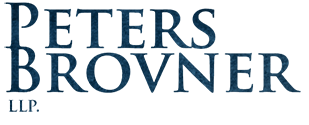DOJ Announces Plan to Turn Up the Heat on Corporate Criminal Conduct and Urges Stronger Compliance Programs
By Lesley Brovner & Mark Peters
Last Month, Deputy Attorney General Lisa Monaco gave a speech to the ABA in which she discussed certain DOJ priorities that amounted to a much more aggressive stance toward corporate criminal conduct. Indeed, in emphasizing the seriousness of this policy shift, Monaco stated that “corporate crime has an increasing national security dimension.” More substantively, Monaco stated that DOJ will “surge” resources to these types of cases and make clear to line level prosecutors that they are not to shy away from hard cases even if they will, from time to time, result in acquittals.
One important warning from Monaco is that while DOJ will focus first and foremost on individuals who commit crimes, “where appropriate, we will not hesitate to hold companies accountable.” In other words, where corporate culture tolerates (or turns a blind eye) towards individual misconduct, DOJ will now redouble their efforts to hold the company itself liable. For this reason, Monaco expressly urged companies to invest in robust compliance programs now – before wrongdoing can set in or an investigation is started.
To make this change in priorities more concrete, Monaco announced three specific changes to the way DOJ will approach companies in these matters:
- First, to obtain cooperation credit, a company must now identify all individuals involved in misconduct, regardless of their position, status or seniority. It will no longer be sufficient to simply identify those who are “substantially involved” in the misconduct.
- Second, prosecutors will now be directed to consider “the full criminal, civil and regulatory record of any company when deciding what resolution is appropriate.” In the recent past, prosecutors considered only similar misconduct (for example, prior FCPA violations in an FCPA case). Now however, all misconduct, whether similar to that being resolved or not, will be considered.
- Third, DOJ will now be free to impose monitorships whenever “it is appropriate to do so in order to satisfy our prosecutors that a company is living up to its compliance and disclosure obligations under the DPA or NPA.” Prior guidance, that had been read to state that monitorships are disfavored is now being rescinded.
Beyond these three specific changes, Monaco also explained that further changes are also being considered. Most notably, new efforts will be undertaken to crack down on “recidivist companies.” To this end, consideration will be given to whether DPAs or NPAs are appropriate in such circumstances.
In closing, Monaco noted that: “Companies need to actively review their compliance programs to ensure they adequately monitor for and remediate misconduct – or else it’s going to cost them down the line.” This is a warning that every corporate entity should take extremely seriously. For more information on this topic, or to create, evaluate or bolster needed compliance programs, please contact us at Peters Brovner for a free consultation.
